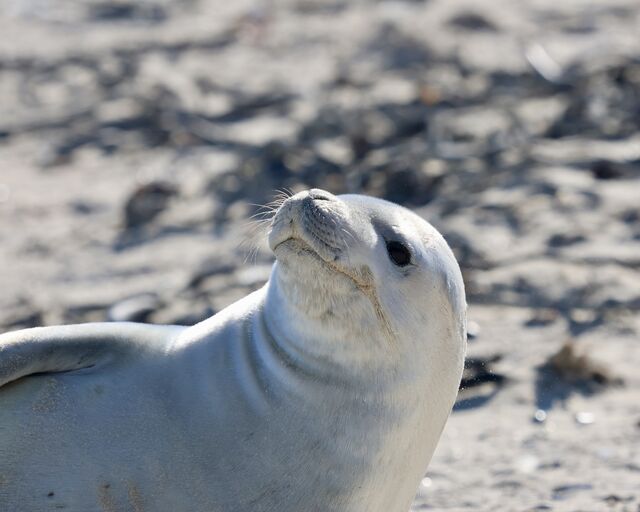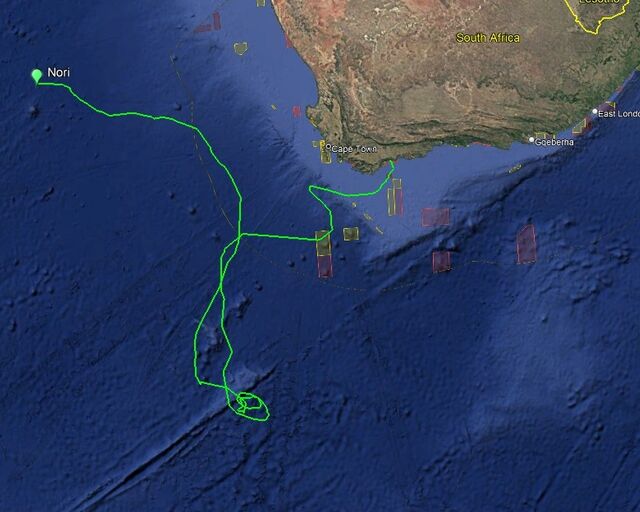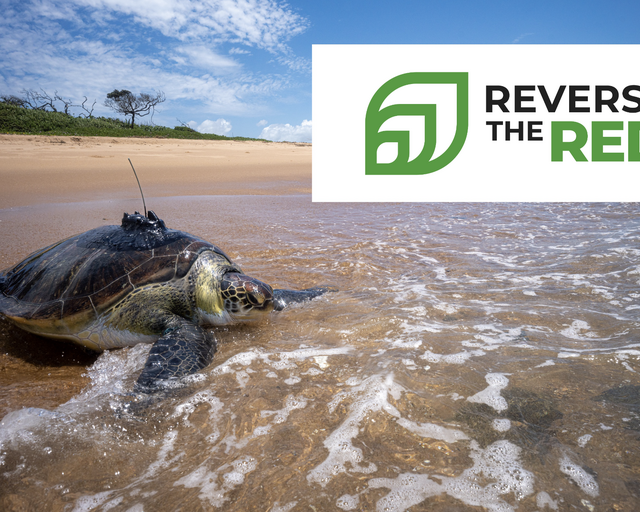Exploring ocean careers at the Two Oceans Aquarium
Have you ever visited the Two Oceans Aquarium and wondered what it’s like to work with sharks, penguins, and other incredible ocean animals?
For our team, their passion for the ocean actually started long before they began working at the Aquarium. In this Q&A, three staff members share the journeys that brought them here, delve into their roles at the Aquarium, and offer advice for aspiring marine careers.
Let’s learn more from…
Amy Stumbles
Penguin Keeper
Anzio Abels
Outreach Teacher
Inge Adams
Senior Quarantine Aquarist
What sparked your interest in the ocean?
Amy Stumbles: I've always had respect for the ocean because I was pulled underwater by a wave as a kid. But I've also always had a deep fascination with it, because so little is known about the ocean. I find it interesting that we know more about space than we do about our own oceans. It's very mysterious, and I love a good mystery. Growing up in Johannesburg (a concrete jungle), I wasn't close to the ocean at all, so the best I could do was an ocean-themed room, which I loved.
Anzio Abels:I have always had an interest in the natural environment, which stems from watching National Geographic documentaries and reading through nature-based books in my childhood.
Inge Adams: I’ve always loved swimming and being in the water, so I was naturally drawn to the ocean. My real fascination with the ocean was only unlocked when I was lucky enough to do an open water scuba diving course, and I got to see the array of life beneath the waves.
Did you always know you wanted a career in the marine field?
Amy Stumbles: No, I've always been interested in conservation, but coming from Johannesburg, I thought I would end up in the bushveld somewhere. But now that I'm here, I'm so glad my journey led me this way.
Anzio Abels:I'd always wanted a career in the conservation field; considering that the majority of Cape Town’s reserves are adjacent to the ocean, it seems it was inevitable!
Inge Adams: I always knew I wanted a career working with animals, but I only started focusing on the marine field when I started my master’s degree in 2015. After that, I didn’t look back!
How did your education prepare you for where you are now?
Amy Stumbles: My secondary and tertiary education really helped prepare me for this field as I followed my heart and did what I loved. Diving deeper into the field gave me extensive knowledge and increased my passion for the natural world we live in.
Anzio Abels: I studied Biodiversity and Conservation Biology at the University of the Western Cape, which provided a greater understanding of the natural environment.
In 2001, when I was in Grade 10, I had the opportunity to attend the Young Biologist course offered by the Two Oceans Aquarium - it was the first one ever offered.
Inge Adams: School helped me with knowledge on topics like water quality and animal biology, but the bulk of my knowledge was gained during my time at Two Oceans Aquarium. You learn lots of hands-on skills when you start working!
What does a typical day look like for you?
Amy Stumbles: My day usually starts with cleaning the Penguin Exhibit and preparing fish, squid, prawns, and insects for the penguins and amphibians in that space. After that, I feed the penguins, toads, platannas, and mudskippers before we start with the morning’s Penguin Experience. I also prepare medication, keep records and data, and educate the public about our oceans and endangered species.
Anzio Abels: I start my day with a bit of admin before heading off to one of the many primary schools in the Cape Metropole, where I teach a range of Smart Living lessons to Grade 6s and 7s. These lessons are interactive and often include practical sessions. After teaching for the day, I return to the Two Oceans Aquarium to prepare for other courses and projects.
Inge Adams: My days always look different. There are always husbandry and admin tasks that need to be done – these include feeding, data keeping, and health rounds. Health rounds are an important part of animal welfare – alongside our vets, we check on our animals’ general well-being and ensure that any concerns are addressed. I’m also involved in animal moves and procedures, like when we prepare to release a shark or need to provide medical treatments.
What’s the most rewarding part of your job?
Amy Stumbles: The most rewarding thing about my job is forming bonds with the penguins I care for.
Anzio Abels: Engaging with students who may have never been exposed to this kind of education and providing them with practical solutions to living sustainably.
Inge Adams: The most rewarding part of my job is watching an animal heal successfully after an injury or illness. I like knowing that I have a positive impact on the welfare of the animals in our care.
What skills (beyond science knowledge) are important in your line of work?
Amy Stumbles: Passion and dedication (we do it for the animals and not the money), a moderate level of physical fitness, and not being afraid to get your hands dirty! It’s also vital to be able to work as a team and be caring and hardworking.
Anzio Abels: Public speaking or presentation skills are a must for an ocean educator, as well as empathy and understanding of the social context of your students.
Inge Adams: Most importantly, you need to be patient and have compassion and empathy for the animals you work with.
Do you have any advice for students wanting to explore marine careers?
Amy Stumbles: I’d say to follow your passion and study as far as you can – perhaps aim for a Bachelor of Science degree. Get as much experience as possible and volunteer wherever you can. Do it for the love of animals and the environment.
Anzio Abels: Find out what type of work you are passionate about (whether it’s lab work, fieldwork, etc.). Then, take all volunteer and intern opportunities related to that work where possible!
Inge Adams: The most important advice I can give you is to volunteer and intern at different places, as that practical experience will be extremely valuable when hunting for jobs.
The marine field is ever-changing, much like the tides in the ocean. If you’re an ocean-minded learner who’s thinking about your future, we think that the path is an easy one. Our Ocean Campus offers Marine Sciences as an FET subject: We can guarantee that it’ll never be boring, and you’ll be making a positive difference in the future of our ocean. And maybe one day, you’ll be working at the Two Oceans Aquarium, too!
Related News
Sign up to our Newsletter
Receive monthly news, online courses and conservation programmes.


